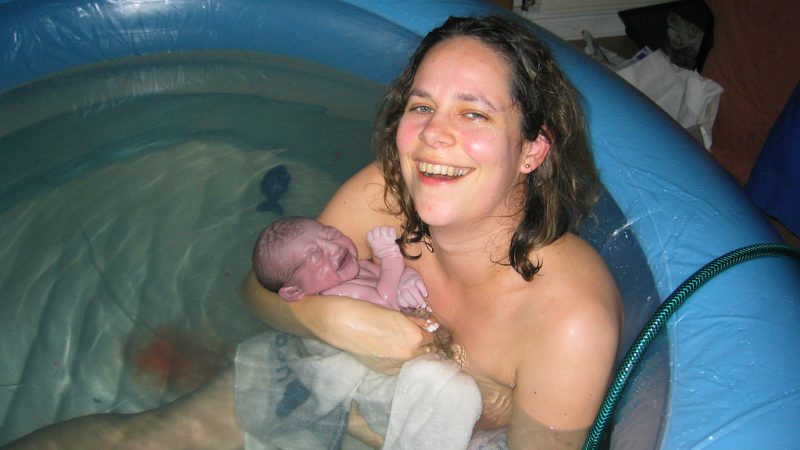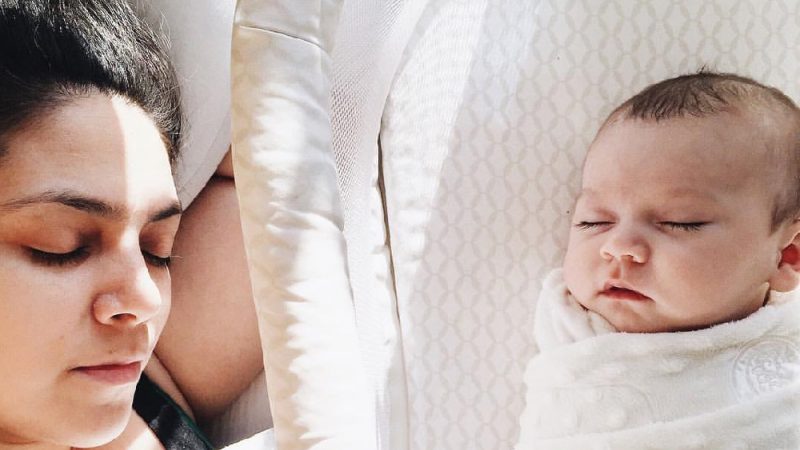
Waterbirths for all! A Q&A with Dianne Garland
Big Birthas Parenting Science Gang are interested in waterbirths and whether mothers with a high BMI have difficulty accessing them. So we were overjoyed to speak to Dianne Garland, an experienced midwife who has been training others about water births for many years.
Image: Redbirdo CC BY-NC 2.0
Dianne: Thanks for asking me to this Q&A – I have been a midwife since 1983 and supporting mothers and midwives who wish to use water for labour/birth since 1986. I have taught gentle birth waterbirth practices worldwide to parents, midwives, doulas, doctors and of course doctors.
PSG A: Hi Dianne – thanks so much for joining us! What do you think is the biggest barrier for women who want a water birth/labour?
Dianne: I feel there is still a lot of fear surrounding the use of water – what to do in an emergency, how to get a mother out of the water safely for her and midwives.
PSG A: It’s sad that fear is factor Dianne. Do you think that midwives find water births challenging? Or is it other health care professionals or mothers who are fearful?
Dianne: I think it’s a combination with fear – many midwives and doctors have embraced the use of water for its relaxation, mobility and peaceful surroundings. We work together and that means we need to be open about what is safe and realistic and why sometimes water labour is ok but maybe not waterbirth. It depends on the experience, exposure and teamwork which assists midwives offering water to mothers.
PSG B: Oh, interesting to hear a difference between water birth and labour! My sum experience of water birth is really wanting one and being told in my third trimester that there was no chance!
Sorry for the naive question but would you ask a labouring mother to leave the pool at a certain point in labour, for safety reasons, then?
PSG C: I was labouring in water and asked to leave because they were concerned he might have the cord around his neck (he was high up when my waters broke and descended suddenly).
Q: What are your thoughts on water birth and larger mothers? From our chats in our group, it seems like some women are being denied waterbirths on the basis of BMI alone. Is this your experience?
Dianne: I ask mothers who have higher BMI a couple of simple questions:
- Do you have a bath at home and use it without anyone helping you?
- Can you lift your leg up two steps at a time?
- If your BMI is higher, are you doing any anything to specifically boost your health eg swimming/diet advice
- Are there any extra concerns – diabetes/ high blood pressure?
- Finally I always ask mothers what attracts them or known benefits of using water.
Yes there is a safe time to leave the water if mother and or midwife feels its right to do so.
PSG A: And if the mother answers “Yes, I can get in a out of a bath just fine. And no, there are no other complications”, then does give you a good idea that labouring in water is reasonable idea? Or is it more complicated than that?
Dianne: I would ask to see the pool and its environment – ask the midwife how many waterbirths they have done and have they experienced any complications. Certainly using CFM (continual fetal monitoring) is an option if the unit has telemetry underwater monitoring – not all units do and many would not use in a birth centre.
Q: We’re considering doing some research into waterbirths and high BMI mums. Do you know of anyone doing research in this area? Or any relevant studies you think we should look at?
Dianne: I am not aware of any research in this area. I encourage all units to keep not just waterbirth data but also info on water labours – if mother got out why (choice/ complication/ birth planning advice)?
PSG B: If there’s no research currently, what would be useful to you in your role? What evidence do you wish you had to better support waterbirthing / labouring mothers?
Dianne: I would just like units to keep water labour data. Evidence is difficult as we understand the four main theories about why water works, but we do not always understand why water works for one mother but not another.
We have data published in summary in my book from around the world (103 countries support waterbirth) and lots of powerful birth stories from parents about the power of water.
PSG A: The four main theories?
Dianne: From my work we have seen that there are physiological, psychological, spiritual and hormonal effects which support women in water.
The full impact of each theory maybe different for each mother but for mothers with higher BMI the physiological properties of water – buoyancy, mobility can be enhanced if pool is big and deep enough for that individual mother. Hence why pools are big.
It can make it more challenging for the midwife to monitor baby – I just ask the mother to move – squat, kneel or lay back!
PSG A: I guess that you measure these effects mostly by the behaviour of the mother while she is in the pool. How do you measure the hormonal effect?
Dianne: We call it the aaahhh effect – shoulders relax, women smile and they get into positions that make them feel good. We know that if we reduce adrenaline and increase endorphins then oxytocin flows. Studies support the theory that labours are shorter in the water for many women – not all of them. That’s why studies and data about why women leave pools is vital.
Q: A lot of women with high BMI are denied access to a pool on the grounds of ‘our hoist wouldn’t be able to lift you in an emergency’
Do you have any experience of tackling this? Alternative solutions?
(with my home birth we said we’d puncture the pool with scissors and drain it out onto the patio, if it came to it, but that’s not an option in a hospital solid pool…)
PSG D: I don’t think I’ve seen many hoists that lift less than 150kg (23 stone) and lots can lift more…
Dianne: When I teach, many units ask for practical sessions – we practice what I call room preparation to emergency evacuation including the use of a net, not a hoist, as most pool rooms do not have hoists.
At home we may have a lower threshold of when to ask women to leave water. I have heard of midwives saying they would puncture the pool, but an easier way with a birth pool in a box is to deflate the middle ring. It deflates very fast.
But I have to say that I have never heard of anyone needing an emergency evac from a home pool – so preparation is important and I guess never say never?
PSG C: Is that an inflatable net mesh arrangement? I think I’ve heard of those – not seen for sale or in use, however.
Dianne: Most midwives do not have access to hoists. When we were filmed by a company called Silverlea many years ago, colleagues and I found that evacuation was faster with a net – the water assists the lift.
Q: I have read a lot about women not being allowed a water birth -being told it was for safety in case they had to be lifted out of the water. But surely that would be a weight, rather than a BMI issue. Two women weighing 10 stone each weigh the same, even if one is 5ft (obese) and one 5ft 10” (healthy weight)…
Dianne: Yes it should all be about individuals. We always have this discussion face to face in the pool room.
PSG A: It seems like there are very few problems encountered by midwives during water labours, but of course this could be due to heavy screening – that only those with low risk factors are “allowed” to use the pool.
What do we know about the biggest risks – are there situations where water labour is really not a good idea? And are these situations found more often in women with high BMIs?
PSG E: Manual handling concerns seems to be the key factor in high BMI mums ‘not being allowed’ to use the pool. I wonder how we could do some research on this.
Dianne: That’s a difficult one. I guess we would need to ask units how they support higher BMI women – assessment/ discussion/ birth plans / data of any complications ?
PSG B: If Dianne’s main criteria is how well a woman can get in and out of a bath or up flights of stairs, maybe it starts as simply as that?
I mean, I wonder how well the mobility of higher bmi women is understood in the first place.
Maybe the majority would find that difficult, and therefore there are some clear risk factors to do with getting in and out of pools. But if your average women of a certain BMI actually would have no problem with this, then that’s a good indicator that maybe this is not a major risk factor.
Dianne: If a mother has a complex health issue eg diabetes / high blood pressure, then water would not be the best for safest care.
Women with complex issues have used water sometimes just for labour or birth and even third stage lotus birth. So even if a mother bled last time – it might not be advisable to be in the pool throughout, but she could still use for 1st and 2nd stage.
We have a professional midwife advocate role in UK who is there for midwives and mothers to discuss choices and make a safe evidence based birth plan.
Q: You said there’s no research on how many women with high BMIs are denied use of a birthing pool. Is there any research on women in general being refused use of a birthing pool? Anecdotally, I seem to know a lot of women who wanted to use one, but weren’t able to for various reasons.
Dianne: I doubt most units keep data on why women cannot use pools – its sometimes as simple as not being available. In my book I have a whole list of women who have challenged midwives or doctors who have said no. My first tip for mothers is to always ask WHY.
Q: It’s my suspicion that water in labour and birth may actually confer greater benefits on bigger women – e.g. we’re at increased risk of high blood pressure, but we know that water has a tendency to lower blood pressure…
What’s your feeling on this?
Dianne: There has only been one study done on lowering blood pressure in water and sadly it was not undertaken on pregnant mothers – I doubt it would get ethical approval – so any evidence is based on experience or exposure.
PSG C: Oh, sorry, I thought it was a proven link.
Interested? Why not read some more of our Q&As about issues that are faced by mothers with a higher BMI:
- Bigger Births and Breastfeeding with Prof Debra Bick
- Where do plus-sized mothers give birth? with Dr Rachel Rowe
- What support is offer to pregnant women with a high BMI? with Dr Ellinor Olander
You can read other Q&As on lots of subjects relating to parenting at: www.parentingsciencegang.org.uk/live-chats-with-the-experts/.
Feeling inspired? Want to help do some research to add to the body of knowledge about pregnancy and childbirth for women with a high BMI? Why not join our Big Birthas Parenting Science Gang on Facebook? We’re going to be doing own study and you can help us decide exactly what we do!


